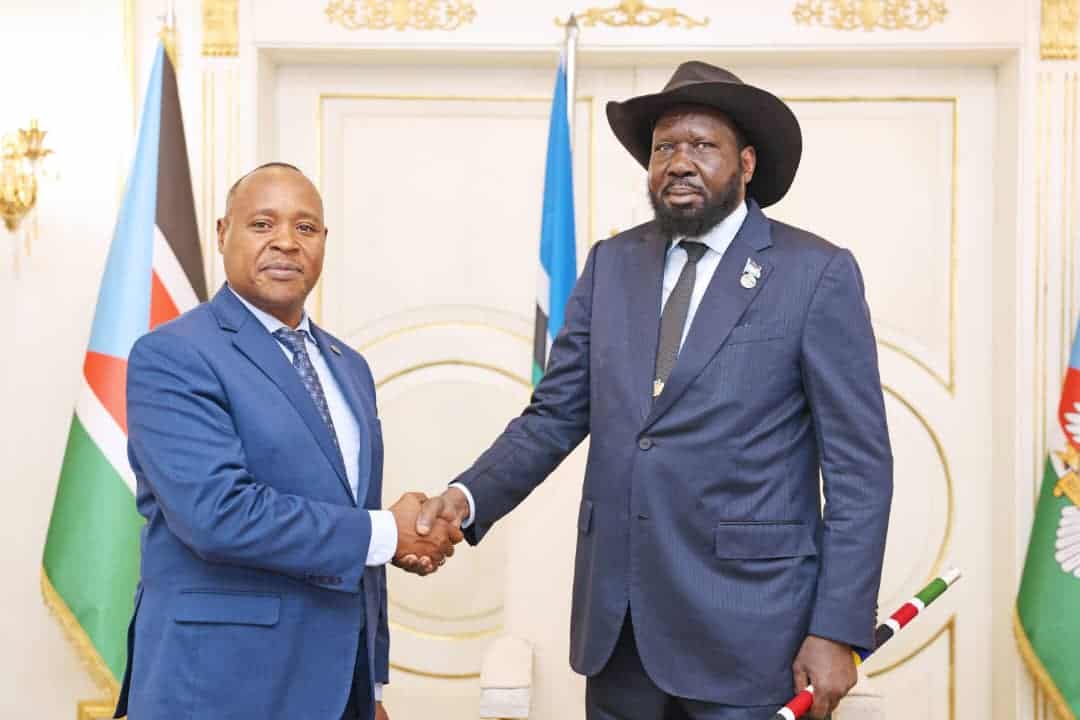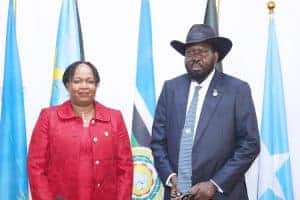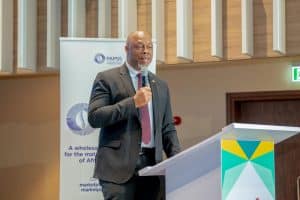
East Africa Community’s State of Expansion and Turbulence
By Muoki Musila
Shared Gains and Pains
The end of 2023/2024 has been a critical time for the East African Community to take stock of its actions and commitment to regional integration and cross-border trade. The entity, while outlining its aspirations, challenges, and achievements in productive sectors, infrastructure, trade, and regional peace, has showcased a shared interest in continued progress. In the right direction, for instance, the community harmonized 172 standards and revised the regional standardization plan with consideration to national and regional priorities.
However, the success of the community and the promise of the EAC notwithstanding, the community has undoubtedly continued to face turbulent times that impact trade and regional integration goals. The admission of Somalia into the bloc, a troubled member after the warring Congo, illuminates the misplaced priorities that the community needs to respond to. The question of cohesion ahead of expansion motives to maximize the intended benefits of the community is, therefore, a question in the minds of many.
Prioritizing Crises
Somalia formally joined the East African Community as its eighth member after years of negotiations in a move that is seen as introducing more troubled members into the group. While the economic intentions of the move are justified, the historical conflicts in the country may lead to increased disturbance in cross-border activities. Accurately so, this comes at a time when the community is contenting with instabilities in recent additions, including South Sudan and the Congo that have impacted trade on more than one occasion. While the primary objective of the community is focused on widening and deepening economic, social, political, and cultural integrations that arise, achieving these aspirations among wars is a challenge.
“It is, therefore, time for the EAC to consider the absence of powerful leadership as a significant impediment to its continued growth and progress.”
Common knowledge is that the admission of the latest troubled members, including Somalia, Congo, and South Sudan, has diversified and broadened investment opportunities for members in the region. However, the internal conflicts have occasionally spilled into external tensions that spell doom for trade and these efforts in the community. The role of the EAC secretariat and regional leaders in extending goodwill towards enhancing stability and expediting the benefits of the expanding bloc is now more visible than ever.
The East African Community integration efforts have been instrumental in the removal of visas and work permits for members, allowing the use of UD and student cards, among other documents under Article 6(9) and Regulation 6(5) of the Common Market Protocol. However, tension persists among member states in cross-border integration, casting doubt on the role of the community in enhancing regional integration. Cross-border dynamics between Uganda and Rwanda, territorial border disputes between Uganda and Kenya, and the Rwanda and DRC conflict that pushed the region to the brink of war are examples of bad blood between brothers. The failure of the EAC leadership to get ahead of these internal conflicts raises questions on the future of its existence and its continued impact on trade and other relationships.

Image: HANDOUT
Indeed, even after the revival of the EAC, the region is still facing some leadership and structural challenges that continue to undermine its aspirations. Members must recognize that sustainable development and growth cannot be achieved amidst conflict and violence as it continuously creates hindrances to business and investment. Without prioritizing stability, therefore, more budget allocations and boardroom meetings will do little to enhance the bloc’s progress.
Kenya, the most significant contributor and a founding member of the EAC, pushed for veto power in the community in 2023, giving the bigger brothers power in decision-making. The region’s aspirations have been slowed by financial shortages occasioned by delayed remittances by members, which affect the performance of institutions, key projects, and programs meant for regional growth. Put into perspective, the current EAC leader, South Sudan’s Salva Kiir, leads a fragile state riddled with corruption, weak governance, and insecurity and is a financial burden to other EAC partner states. One would, therefore, question how a leader low on home control can impose leadership on much stronger states. It is, therefore, time for the EAC to consider the absence of powerful leadership as a significant impediment to its continued growth and progress.
Getting ahead of destabilizing acts
Undoubtedly, the EAC has made significant steps in establishing a free trade area, customs union, and a common market for members to emerge as a highly promising bloc in the African Continent. With the onset of the African Continental Free Trade Area (AfCFTA) and other AU Vision 2063 aspirations to strengthen these aspirations, the bloc has a strategic role in the prosperity of its people. However, if anything, continued instability, leadership challenges, and integration failures are clear indications that the community has fallen well below its potential and has been unable to maximize cross-border trade opportunities, trade disputes, and peace initiatives.
It is, therefore not lost on the EAC secretariat, leadership, and member states of the need to demonstrate political will in maintaining political sanity and stability to spearhead other aspirations. Political disputes and other fallouts only contribute to strained relations that spill over to trade, straining the shared regional integration agenda. Moreover, it should be conceivable for the secretariat to consider the consequences of continued bloc expansion while focusing on accepting members with acceptable levels of stability internally.
It is further noted that, while the region has been about opportunities, support, and consolidation of the region for bargaining, the current failures bread failures. As the new 2024/2025 year unfolds, it is perhaps ideal that the new EAC leader, Ms. Veronica Nduva, considers reevaluating the bloc’s aspirations. It is time for the bloc to reevaluate its approach to dealing with grievances, content with leadership dynamics, and diversities in financial, resource, and social elements that characterize the bloc.



